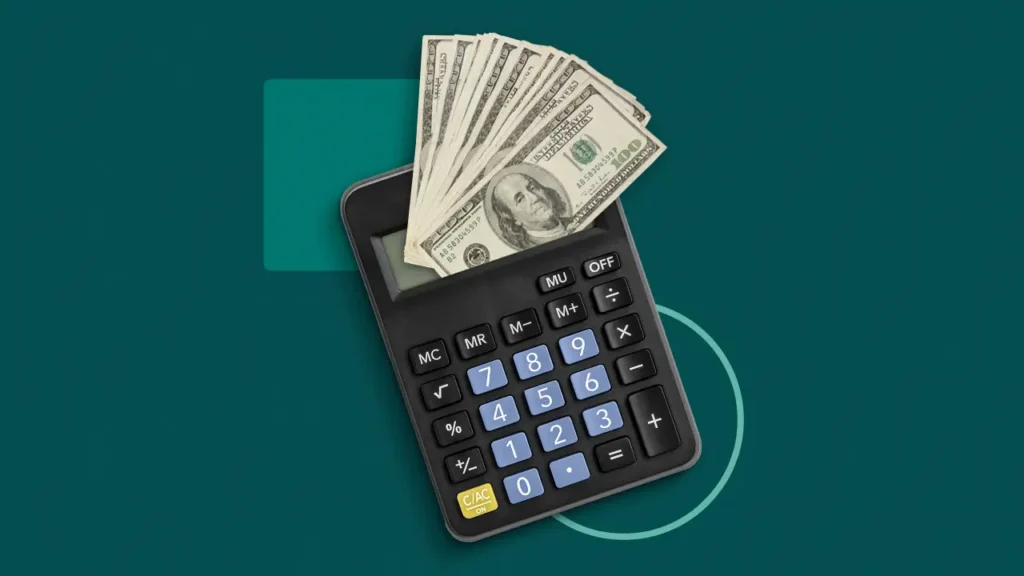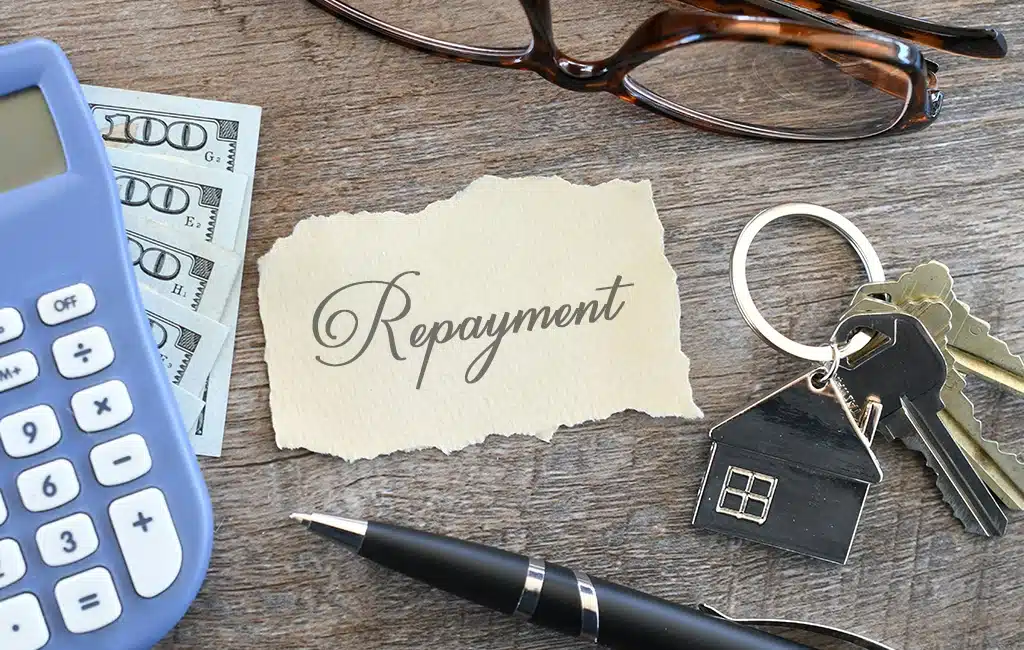Ever wondered what increases your total loan balance? Well, it’s a common question for anyone dealing with loans, whether it’s for college, a car, or anything else. In this article, we will break down the things that can make your loan balance get bigger and make it easy to understand.
So, if you are an individual who is just starting to dip your toes into the world of loans, don’t worry – we have got you covered with the answers you need to make smart financial choices.

SEE ALSO: Best Loan Apps in Nigeria
What is the total loan Balance?
Total Loan Balance means, as to any Mortgage Loan, an amount equal to the total outstanding amount of such Mortgage Loan, including all principal, interest, prepayment premium, repayment premium, yield maintenance payments (if any), minimum internal-rate-of-return fees (if any), breakage, and other charges payable by the Mortgagor pursuant to the applicable documentation.
Understanding capitalization
Capitalization in the context of loan balances refers to the process of adding unpaid interest charges to the principal balance of a loan. This typically occurs when the borrower is not making regular payments covering the accruing interest. Capitalization can apply to various types of loans, including student loans, mortgages, and other forms of debt.

Here’s how capitalization works:
- Accrued Interest: When you have a loan, interest accrues over time based on the interest rate and the loan’s outstanding principal balance. This interest accrual is typically calculated daily or monthly.
- Regular Payments: In most loan agreements, borrowers are required to make regular payments. These payments are designed to cover both the interest that has accrued and a portion of the principal balance.
- Insufficient Payments: If a borrower does not make payments that cover the full amount of the interest that has accrued, the unpaid interest is added to the principal balance of the loan. This means that the borrower effectively owes more than the original principal amount.
- Increased Balance: The loan balance increases as interest is capitalized and added to the principal balance. This can lead to a situation where the borrower owes more than they initially borrowed, even if they have been making payments.
- Long-Term Impact: Capitalization can have long-term consequences for borrowers because they will now be paying interest on a higher principal balance. This can result in higher monthly payments and more interest paid over the life of the loan.
- Common in Student Loans: Capitalization is particularly common in student loans, especially during periods of deferment, forbearance, or when the borrower is on an income-driven repayment plan. In these situations, the borrower may not make payments covering the accruing interest, leading to capitalization.
It’s important for borrowers to be aware of the capitalization process and how it can affect their loan balances. Making regular payments that at least cover the accruing interest can help prevent excessive capitalization and reduce the long-term cost of the loan.
Additionally, understanding the terms and conditions of your loan agreement is essential to know when and how capitalization may occur.
Keep in mind that loan terms and capitalization rules can vary depending on the type of loan and the lender, so it’s important to review your loan documents and speak with your lender or loan servicer if you have specific questions about capitalization and how it applies to your loan.
READ ALSO: Fake Loan Apps in Nigeria
What are the different types of interest rates?
Interest rates can be classified into various types based on different criteria, including how they are determined, their purpose, and the time period they cover. Here are some common types of interest rates:

- Variable interest:
This refers to an interest rate that can change over the lifetime of a loan. Variable interest rates can change periodically based on a reference rate (e.g., a benchmark interest rate like the prime rate) or other predetermined factors.
They are often seen in adjustable-rate mortgages and certain types of loans. Variable interest rates are a common way for banks to try and insulate themselves from market fluctuations.
It allows them to adjust for factors like inflation and rising interest rates, so they aren’t saddled with under-market loans. For this same reason, variable interest rates are usually bad for consumers.
- Simple interest
This rate, otherwise known as “nominal” or “regular” interest, is your basic interest rate. This is the straightforward calculation of how much you owe without correcting for any other factors such as time, inflation or payment schedule.
- Compound Interest
This refers to when a product calculates your interest on a periodic basis and then adds that to the principal. It’s often referred to as “interest on interest.” It is different from simple interest in that the rate at which your interest is calculated and the rate at which your interest accrues are different.
- Fixed Interest Rate
With a fixed interest rate, the rate remains constant for the entire term of the loan or investment. Monthly payments or interest earnings remain the same.
- Real Interest
This calculates the rate of interest after accounting for inflation. The purpose of real interest is to correct the fact that most loans are long-term instruments. While (ordinarily) inflation is a minor concern over a period of months, over a period of years, it can dramatically change the value of a loan.
As a result, a real interest rate indicates how much money the lender has made after adjusting for the reduced value of those payments year-over-year.

What increases your Total Loan Balance (Factors)
Let’s delve into the key factors that can lead to an escalation in your total loan balance.
- Interest Rates
When securing a consumer loan, lenders affix an interest rate to the loan, necessitating repayment of the principal alongside interest.
Depending on the loan’s structure, the interest rate connected to your loan can gradually increase the loan balance.
In many instances, interest may compound over time through a process known as interest capitalization.
Essentially, this entails the addition of interest payments to the loan balance as it accrues. Consequently, the augmented loan balance, inclusive of accumulated interest, is used to calculate further interest.
Over time, compounded interest can substantially inflate the loan balance. It’s vital to note that your Annual Percentage Rate (APR) is distinct from your interest rate, as it encompasses the interest rate alongside other loan origination fees.
- Variable Interest Rates
Variable interest rates exhibit fluctuations over time and are typically tied to a benchmark or index rate that varies according to market conditions. While variable interest rates may appear appealing during periods of low interest rates, the potential for rising rates can lead to mounting interest costs.

For instance, most credit cards come with variable interest rates. If you carry a balance, an abrupt increase in interest rates could result in a growing loan balance. Unless you can make more substantial payments towards your outstanding balance, the loan balance will continue to expand.
As an illustration, a Federal Reserve report reveals that the average credit card interest rate surged from 14.51% in the fourth quarter of 2021 to 19.07% in November 2022, potentially causing a burgeoning loan balance.
- Minimum Payments Only
Succumbing to the allure of sticking with the minimum monthly payment may appear convenient. However, making only a relatively small monthly payment puts you at risk of covering less than the accruing monthly interest.
If the interest charges surpass your minimum monthly payment, the loan balance will experience an increase.
While the minimum payment might align better with your current budget, it can pave the way for a growing loan balance.
- Late Payments
Late loan payments often result in immediate consequences, including late fees. Yet another consequence is that the loan balance will continue to accumulate interest, leading to a larger outstanding amount. Habitually making late payments can have a considerable impact on your loan balance.
- Missed Payments
Skipping a payment entirely can entail several adverse outcomes, with one significant concern being the risk of loan default. However, missing a payment can also provide an opportunity for your loan balance to swell.
When a payment is not made, the loan balance initially remains unchanged, but it allows interest to accrue on a larger loan sum. Consequently, you may witness a higher loan balance after missing a payment. Diligently striving to stay current with your payments can serve as a safeguard against a mounting loan balance.
SEE ALSO: 9 Smart Things You Can Do for Your Finances and Financial IQ

Factors that Reduce Your Total Loan Balance
Reducing your total loan balance is a crucial financial goal because it can save you money on interest and help you achieve greater financial freedom. Here are some strategies to reduce your total loan balance:
- Have a budget
Establishing a budget is a crucial step in managing your finances effectively. It empowers you to allocate resources wisely, prioritize essential expenditures, and prevent the risk of falling into debt by spending beyond your means. Tracking your spending and adhering to a budget can be instrumental in expediting debt repayment.
When you meticulously track your expenditures and create a budget, you gain the ability to allocate a portion of your income towards debt repayment while ensuring there’s ample remaining for all your financial obligations until your next paycheck, particularly if you’re salaried. As you formulate your budget, it’s essential to base it on your typical expenses, encompassing both essential living costs and discretionary spending.
Within your budget framework, you have the flexibility to designate a reasonable percentage of your income towards repaying loans.
This strategic allocation can contribute to reducing your overall loan costs if the repayment amount surpasses the initially agreed-upon terms with your lender. By adhering to your budget and managing your finances prudently, you enhance your financial stability and expedite your journey toward becoming debt-free.
- Borrow what you need
Don’t borrow more than what you need. Sometimes, your good credit score might encourage you to borrow more, but you must restrict yourself to borrowing the amount you need. Even before you borrow, you must first understand the overall cost of that loan and whether you need it.
Sometimes, you may borrow when you can get an alternative source or even forego your needs. In addition, some lenders have simple terms when it comes to borrowing and make it easy for you to access the loan, but you should always be careful not to borrow what you don’t need.

- Pay as early as Possible
Paying your loan early and often will help reduce your total loan cost. It is, however, important to ensure that you check the loan terms to ensure that you are allowed by your lender to make such repayments so that you can avoid the fees that may come with prepayment penalties.
Whether it is student loan debt or other types of loans, paying early and often will help reduce the loan balance and the overall interest. It is also important to note that most lenders allow flexible repayments and do not impose penalties on early loan repayments.
- Make More Money
When you secure a loan, you enter into an agreement with the lender to make monthly repayments over a set period to cover the loan amount. These monthly payments are typically determined based on your financial capacity and income.
If your income has risen since the initial minimum repayment calculation, you have the option to pay more than the minimum amount. In fact, many lenders encourage borrowers to make payments exceeding the minimum requirement as it can significantly reduce the overall cost of the loan.
- Make extra payment
Accelerating your repayment schedule is one effective method for reducing your overall loan expenses. By making additional payments toward your loan, you can effectively reduce the interest you would have otherwise paid.
To achieve this, you should consider making extra payments either on a yearly or monthly basis, in addition to the agreed-upon monthly payments with your lender.
Furthermore, it’s important to recognize that making these extra monthly payments will result in you completing your loan repayment ahead of schedule. This helps reduce the total interest paid over the loan’s term and shortens the overall repayment period.
- Choose a short-term length
In an ideal scenario, opting for a shorter loan typically results in lower overall interest payments than choosing a longer-term loan. For instance, if you take out a loan with a five-year repayment period, your total interest payments will be higher than if you opt for a shorter repayment period, such as three or two years.
This disparity arises because, in the longer-term loan, you end up paying a greater amount of interest spread over the entire duration of the loan, as compared to the shorter-term loan.
- Set-up auto pay
Most of the lenders for both private and federal loans have discounts for borrowers who wish to use automatic payments, and that discount is about 0.25% or 0.5%, depending on the lender. One of the advantages of automatic payments is that you don’t accidentally skip a payment since they are deducted automatically, which also helps with your credit score.
READ ALSO: Eco Bank Transfer Code

Conclusion
Understanding what can increase your total loan balance is crucial in taking control of your financial future. By recognizing the factors contributing to loan growth, you can make informed decisions, manage your debt more effectively, and achieve your financial goals.
Remember, staying informed and proactive when it comes to your loans will empower you to maintain a healthier financial outlook and ultimately reduce the burden of debt.
So, whether you’re a seasoned borrower or just beginning your financial journey, the knowledge gained from this article can serve as a valuable tool in navigating the complex world of loans and debt management.
FAQs
What does accrued interest mean?
In accounting, accrued interest refers to the amount of interest that has been incurred on a loan or other financial obligation as of a specific date but has not yet been paid out. Accrued interest can either be in the form of accrued interest revenue for the lender or accrued interest expense for the borrower.
Does Interest Accrual increase loan balance?
Interest payable added to the principal amount leads to an increase in the loan owed by the lender. Accrued interest increases with the passage of time but does not affect a company’s operational productivity during the period.
What increases your student loan business?
Interest on student loans is added from when the first amount is paid either to you or to your university or college until the loan is repaid in full or written off. The interest rate is set at the start of each academic year and is linked to the rate of inflation as measured by RPI 7
